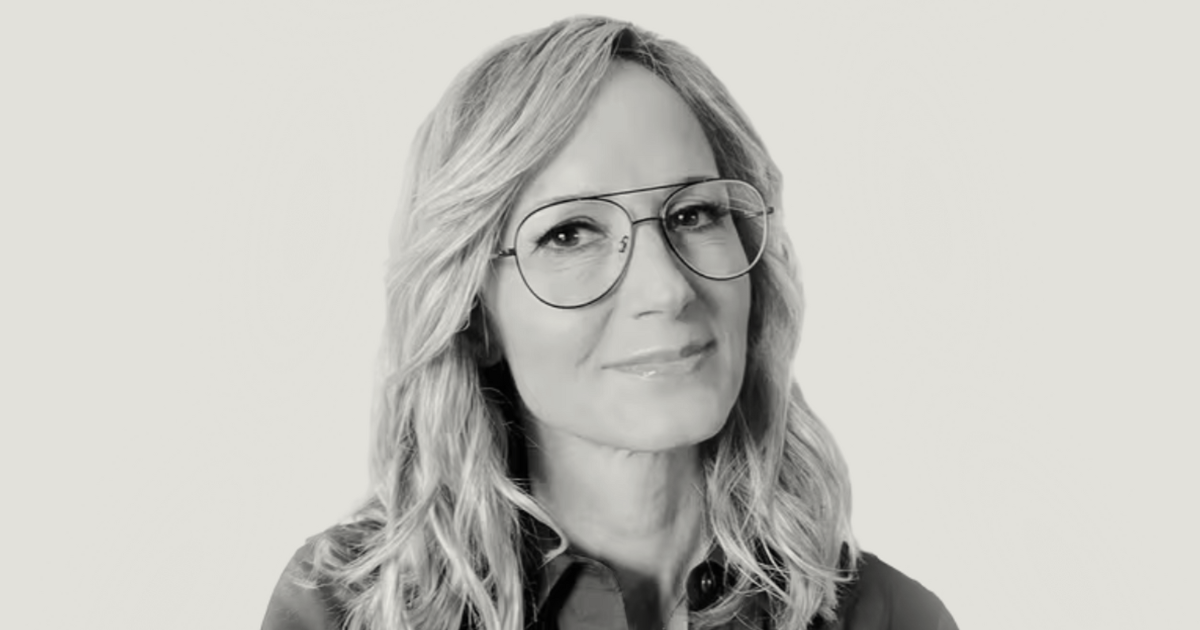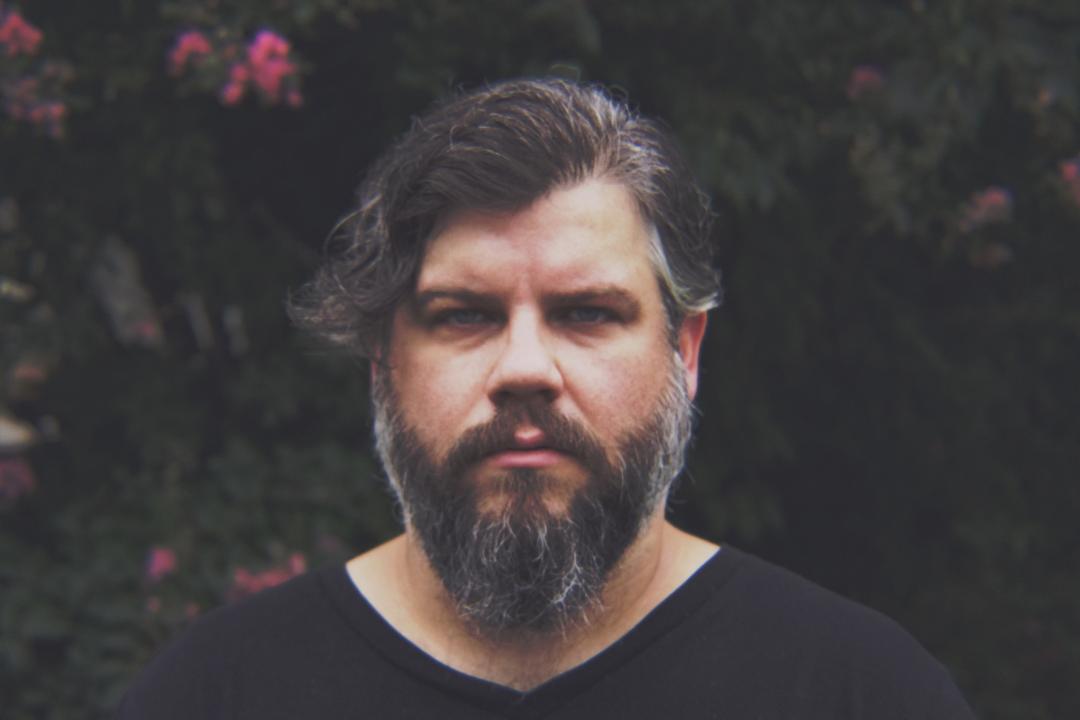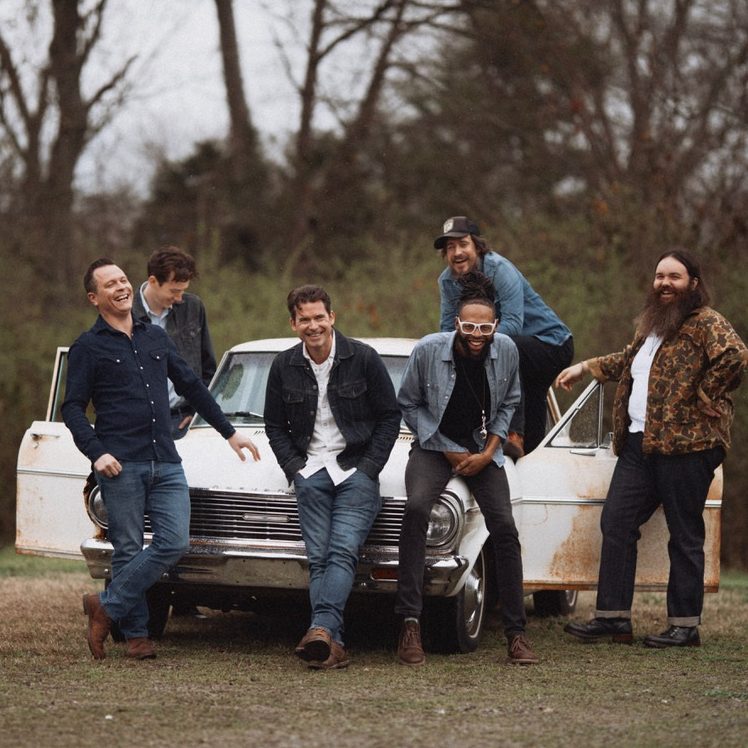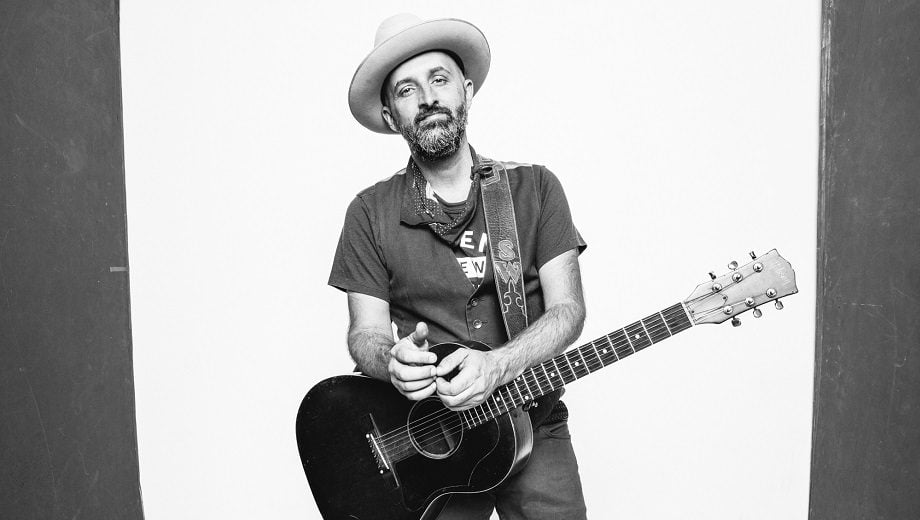From growing up on a Kansas farm, to building an award-winning country music career, to a groundbreaking coming out in 2010, to now. As Senior Vice President, Corporate Social Responsibility and New Market Growth at global workplace experience and facilities management company ISS, Chely Wright has followed a simple but effective mantra: “Plan your work and work your plan.” Her parents instilled this ethic in Wright and her siblings, and to this day it guides her trajectory.
“My parents raised all three of us kids to be problem solvers,” she says. “When you live on a farm, you’re poor, and you have to fix things with duct tape, you get really good at problem-solving. It’s in our DNA, and I love that they raised us to do that.”
A singer and songwriter, she moved to Nashville in 1989. Awarded the Academy of Country Music’s Top New Female Vocalist of 1995, her steady ascent led to over fifteen chart singles — including her first hit, “Shut Up and Drive” (1997), first number one, “Single White Female” (1999), and “The Bumper of My S.U.V.” (2005) — and eight studio albums.
Wright came out in 2010, making history as the first country star to publicly do so — at great personal and professional risk. At that time, she could not have anticipated that her courage and authenticity would not only reverberate and empower countless others, but would eventually lead to a high-level position.
“When I came out, I wanted to do it well,” she says. “That included embedding myself with organizations that could inform, educate, and help me be a good voice in the LGBTQ community. In doing that, I gained tremendous understanding of the power of storytelling and, essentially, culture work. I began having opportunities to do that work with corporate organizations, higher education, and faith communities. It became what I called my ‘side hustle,’ in addition to my work as an artist.”
When COVID-19 lockdowns brought touring to a halt in 2020, Wright continued her “side hustle” through virtual events and workshops. One of her clients, global design firm Unispace, brought her on full-time as chief diversity officer, working in DEI (diversity, equity, and inclusion). This year, she joined ISS, whose international reach includes over 320,000 employees worldwide.
Moving into corporate social responsibility was an organic transition, as CSR intersects with DEI. “We think about creating access and opportunity for Black- and Brown-owned businesses, women-owned businesses, locally owned businesses, LGBTQ-owned businesses, veteran-owned businesses,” she says. “We think about procurement, sustainable sourcing, and ethical supply chains. Our clients have their eye on mindfulness around who works for them. They know there’s an employee value proposition. Those employees want to know that the company they work for is not only being good corporate citizens, but also ‘What are they doing for my community? What are they doing within a twelve-block, twenty-block, hundred-block radius of where I go to work?’
“Especially in the past five to ten years, companies are seriously asking themselves, ‘How do we not only protect our shareholders, our stakeholders, but how are we making sure that the people who work here know that not only do we need and want to give them health insurance, and economic security through a 401k and a paycheck, but what are we doing to use the monies we are making as a company to make the communities outside the four walls of this business, this office, better?’ That’s how I see the shared space between DEI and CSR.”
Wright works in the ISS New York office, sometimes telecommuting from home, and often traveling to meet with clients onsite. “I keep having opportunities to use my story,” she says, “and I cannot think of a single thing more gratifying than doing that now in a corporate space, in a global organization. I get to use that on their behalf and on behalf of our clients.”
In time for Mental Health Awareness Month, Chely Wright spoke at length with BGS about what she calls a move “from C-chord to C-suite,” how the landscape on Music Row and beyond has and hasn’t changed in the fifteen years since she came out, and how she balances fear and caution about the current climate with innate hope and optimism.
So many of us, especially women, experience impostor syndrome in our careers. Did you experience this as you moved into corporate spaces?
Chely Wright: Yes, a hundred percent. “Am I good enough? Am I smart enough? Do I belong here? Do I actually have the goods to deliver?” Making a dramatic life pivot, impostor syndrome bubbled up and it wasn’t my first bout. I dealt with it when I came out. I dealt with it when I left Polygram and went to MCA Records. I dealt with it in 1989, when I went to Nashville to get a record deal. I know now that when impostor syndrome scratches at my back, I just turn around and say, “Okay, I have things to learn.”
There is nothing more exciting than taking on a new skill set and dipping my toe in a body of water that I never thought about being in before. I have 10,000 sunrises left, if I’m lucky. So it’s not “What can I do?” It’s “What do I get to do?” Why wouldn’t a person like me have a second and third life, take the leadership/communication/radical listening/storytelling/execution skill set, and go into corporate spaces?
We take a myopic view of the music business, but it’s business. The artists who have staying power and choices are iconic not just because of their talents. They do open their mouths and something magical comes out. But when you look at what they’ve done with their business and marketing and the protection and stewardship of their brand, it is business.
When Rodney Crowell produced Lifted Off the Ground [2010], he asked me, “What is your goal as an artist?” I said, “My goal is to be able to make music as long as I want to, when I want to, where I want to.” Because I’m in a corporate role right now does not mean in any way, shape, or form that I’m not going to make more records. I know I will. I have the choice to do that when, where, and how I want to, and having that choice is a blessing and a gift.
What changes do you see in the music industry? How does the big picture look today compared to when you came out?
It looks different than it did fifteen years ago. The music industry, as a whole, obviously is making progress. And I think it would be safe to say that the country music industry is making its own progress at its own pace.
All I know is this: change happens, whether we want it to or not, and there will never again have to be someone who says, “Do I jump first?” I jumped and several others since then have joined me in raising their hands, owning their narrative, and saying, “I am a writer, a producer, a picker, and I happen to be a queer person.”
That said, a lot has changed in the world that makes it more difficult to raise your hand and say who you are. Certainly in the last few years, politically, it’s gotten, in some ways, more dangerous to do that. In some ways, the stakes feel higher right now. But change happens. That’s the thing about time: you can’t slow it down. It’s coming.
Does country music have quite a ways to go to be known as a bastion of equity, fairness, justice, and safety for all? Of course. So does banking, construction, and tech. They’re all on their respective journeys and it takes courage. It takes courage to be a holder of a unique story that people might not be ready to hear. It takes courage, tenacity, and a sense of self. God bless those who raise their hands and say, “I am also this.”
Change is not always a forward or positive step. Change is happening now, but in ways that many of us feel are going backward and becoming increasingly frightening.
Change is happening in some terrifying ways. I won’t gaslight and say, “It’s not as bad as it seems,” or, “It’s just rhetoric,” because even if the thing itself doesn’t happen, the terror that it might is the damage.
Some of these things we fear might not come to pass for certain populations, but we look at our brothers and sisters who are in the fight as well — Black and Brown people, immigrants, trans people — they are my family, and very real things are manifesting for them that aren’t just rhetoric. My wife is Jewish, we are an interfaith family, we are two moms, we are women, and we feel under threat in a lot of different ways. People in our family, and in our circle of love and trust and chosen family, are under threat.
American democracy is, by all intents and purposes right now, very close to being disabled. When we hear we’re in a constitutional crisis, in farm terms, we’re hogtied. As a mother of Jewish babies, as a queer person, as a person who has traveled the world and believes America is the greatest nation on the planet, the importance of America and democracy surviving this — it’s not just America at stake. It’s everyone. It’s the human population. We need to find a way to become un-hogtied, because democracy and freedom, real freedom for all, has to stand. I shudder to think what the world would look like without an American democracy.
In a 2010 interview with Entertainment Weekly you said, “It’s the secret haters who do the most harm, historically.” Those haters are now loud and proud. Is that better or worse? Knowing the enemy versus not knowing who and where they are?
Yes. They’ve become unburdened by any concern of being seen as homophobic, anti-Semitic, misogynistic. The power of gang mentality is real and negative gang mentality scares me a lot. There’s danger in it and people are very easily pulled into the vortex of those energies. When these people group together, form coalitions, lock arms, and move, they take on a new and exponential energy that can suck others up into it.
That scares me. I almost wish they would stay in their closets. But it’s also helpful to know who’s with us and who’s against us. That is really powerful information to have.
You said earlier that you have 10,000 sunrises left, if you’re lucky. There was a point in your life when you no longer wanted those sunrises. The Trevor Project’s 2024 U.S. National Survey on the Mental Health of LGBTQ+ Young People cites, among other things, that 39% seriously considered attempting suicide in the past year. What is your message – and how is your mental health today?
Coming out as gay when I did was the only way I could survive. On the morning after I didn’t end my life, on that cold winter day in my house in East Nashville, I was afraid I was going to go back downstairs, grab that gun, and do it. So I got on my knees and said, “God, if you have a way for me now, I need to know it.” Hand over my heart, in an instant I knew, “You’re going to come out, you’re going to come out well, and you’re going to tell the whole story.”
I had a responsibility to my maker to tell that story, which included a successful, relatively well-positioned person who always had a ton of confidence, love, friends, health, and resources. I had all those things, and I found myself with a loaded nine-millimeter gun in my mouth – a gun my parents bought for me for protection.
I had a responsibility to say, “This is how bad it gets when you don’t get to be who you are.” It was important, and I’ve said this many times, for the 14-year-old kid at the foot of their bed with their dad’s gun in their hand. It was important because we have to raise our hands in spaces where representation does matter, like in country music. Somebody needed to say, “I love the Grand Ole Opry, I love our troops, I love having grown up in a farm town in Kansas, I’m a person of faith, and I am a queer person, always have been, and always will be.”
My mental health, ever since that morning after I didn’t end my life – I’ve never had another thought of doing it. I’m often asked if the day I came out was the best day of my life. It wasn’t. The best day of my life was the day I decided I was going to come out, because for the first time since I was 9 years old I had hope that I could be me – the whole me.
So my message … I don’t say “It gets better.” I never liked that campaign of “Just survive junior high. Just make it through being bullied in high school, because once you’re an adult and have resources to change your zip code, it gets better. Just hang on through the shit because it’s going to get better.” I don’t like it. Our job as grown-ups is not to ask young people to survive the shit until it gets better. Our job is to roll our sleeves up, reach out, go to the shit, and fix it for young people right now. It’s incumbent upon those of us who have power, position, and resources to make it better now.
What can each individual, those of us who don’t have “power, position, and resources,” do to help make it better?
What I realized after coming out and having conversations with thousands of other queer people, whether it be on the phone, or they’d write a letter, write to me on Facebook, or stand in line after an event and talk to me and share their story, I understood that everybody has a fan club. That fan club may be your neighbors, your colleagues, your family, your congregation. It may be one person or a collection of people that notice what you do, what you say, how you express yourself. Everybody has their own personal story and presence. How will you use your respective power, position, and resources to do good?
Power means your personal influence – and it may just be with one neighbor or coworker. Position means, for example, if you’re really good at swinging a hammer, then do a little work with Habitat for Humanity. Use your skill. Resources might be, “I’ve got some extra ‘this,’” so use it.
Everybody has power. How will you wield it? How will you use your skill set? How will you use your unique resources, your influence, to make things a little bit better for an organization or a single person? That might mean swinging your hammer, or it might mean helping someone in a crosswalk when the light is about to change. There are a thousand ways we can use our power, position, and resources every day.
You wrote your autobiography Like Me: Confessions of a Heartland Country Singer “to tell the story of who I am.” Who are you now?
I’m exactly the same. I have new experiences to add, my CV looks different, but I am exactly the same person. Still a person of faith, a person who loves country music and the Grand Ole Opry, who loves to meet and talk to people. I’m still really curious, proud of who I am, and as hopeful as I always have been.
And I’m still strategic, as evidenced by the way I came out. If you look at the way I’ve lived my life and evolved my career since then, it should surprise no one how strategic I was in how I came out. I wanted to come out well, and that required strategy, because the people who will and do malign people like me, the Focus On the Family [kind of] organizations and the far-right fringe, who want to tell stories that aren’t true about people like me — you better believe they’re strategic.
I’m going to meet and match their strategy with how I tell the real story of me and people like me. It goes back to what [my parents] Stan and Cheri Wright told me: “Plan your work and work your plan.” I did that when I came out, and I’m doing that now.
Photo courtesy of Shorefire Media.




